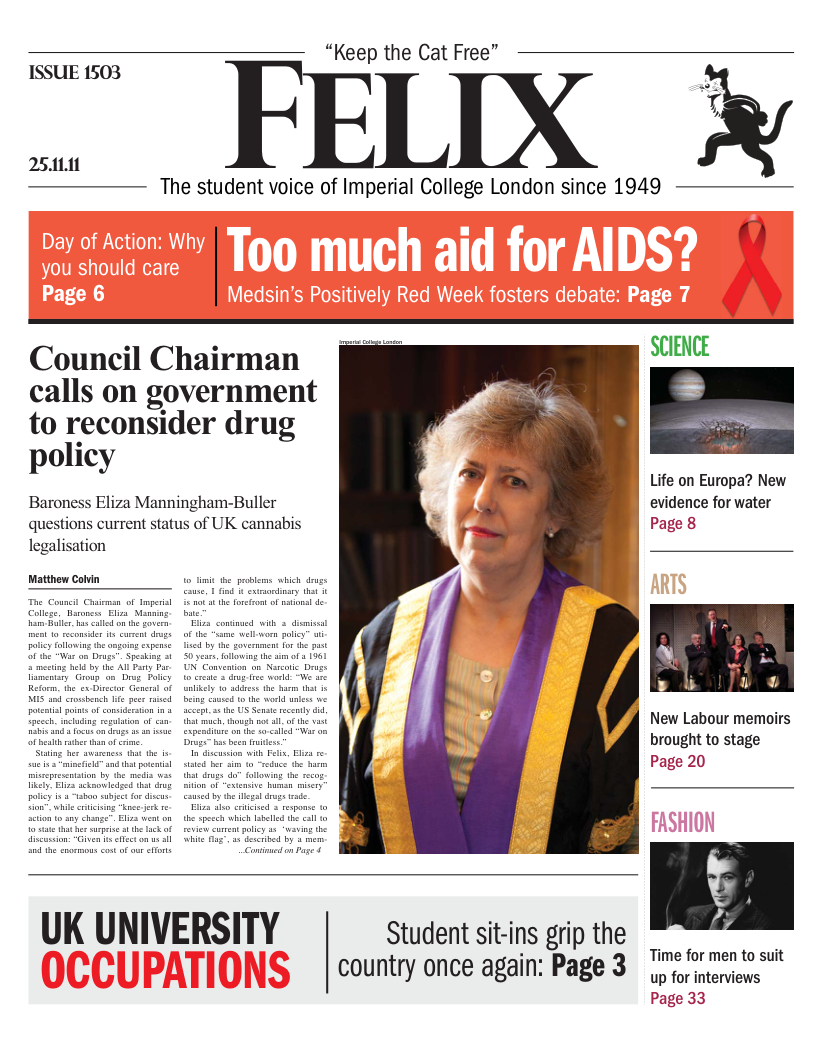From the United States with Love
Rory Fenton looks back at the Special Relationship

The Twentieth Century has been marked and shaped by many international alliances. From NATO to the Warsaw pact, these alliances have changed our world, for better or worse. But even as NATO warplanes fly over Libya and the Arab League rails against Syria, the strongest and most enduring of these alliances has no formal founding documents, no official meeting chambers and no flashy logo.
The so-called “Special Relationship” between Britain and the United States may well be the most important alliance of our time and this Wednesday marked the 200th birthday of the man who, in a very real sense, put this alliance in motion.
John Bright was born on the 18th of November 1811 into a very different cross Atlantic relationship to today’s. America as a colony was still in living memory on both sides of the pond and tension abounded: Bright was just three years old when the British Navy sailed into Washington DC and burnt down the White House. So when the American Civil War broke out in 1861, it was far from obvious that the British should side with the Union.
As the Civil War unfolded, Britain insisted on maintaining neutrality but many in the country were openly pro-Confederate. Incredibly, the City of London raised £17m to support the Southern war effort – a huge sum in today’s money. The Confederacy even bought battle ships from British companies. Indeed, when the Union captured a Royal Mail ship containing Confederate diplomats, the UK threatened the Union with all our war unless they released the men. They duly complied.
Had the UK recognised the Confederacy, the world today would be a very different place indeed.
John Bright, MP for Birmingham at the time, was noted for being a radical liberaliser in Parliament in his support of extended franchise and repealing the infamous Corn Laws. Importantly, he was also horrified at the continued existence of slavery in the southern American states, which is what led him to seek his country’s support for Lincoln’s efforts against the Confederates. This was despite his family owning a cotton mill in the south of the USA, which was sure to lose out should the Union win the war. All the while, the UK was edging towards the Confederates, believing free trade to be more important. It was Bright’s oratorical skills and commitment that persuaded the then Prime Minister Palmerston to maintain neutrality.
It was as a result of Bright’s support for the Union that a strong friendship developed between Lincoln and Bright, despite the two never meeting in person. In Lincoln’s office hung two portraits – one of his predecessors, the other of John Bright. When he was shot dead, one of Bright’s pro-Union speeches from a year before was found in Lincoln’s pocket.
A lone pro-Union voice in a parliament and government split between neutrality and pro-Confederate military intervention, John Bright’s efforts changed the tide of Anglo-American relations for good. Had the UK recognised the Confederacy, the world today would be a very different place indeed. The seeds of an alliance were sown by this man, 200 years old last week, which for better or worse matter more than any other today.








